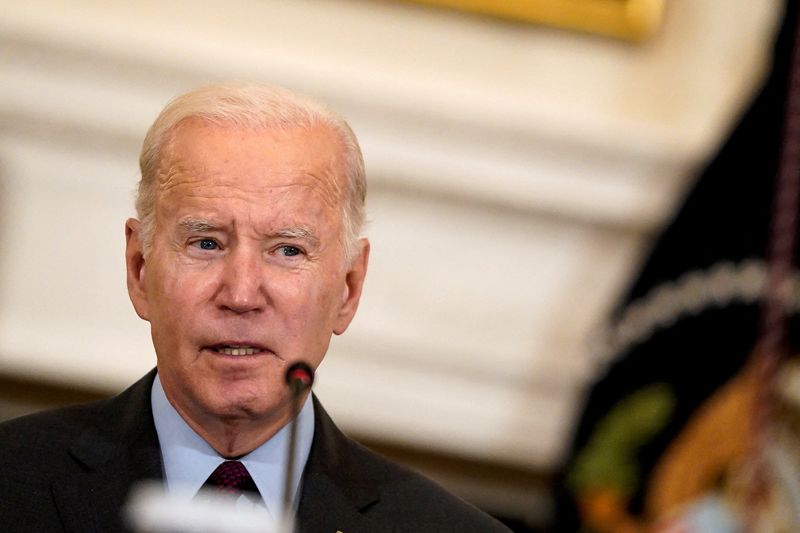By Jarrett Renshaw and Michael Martina
WASHINGTON (Reuters) -The White House rolled out a long-delayed national security strategy on Wednesday that seeks to contain China's rise while reemphasizing the importance of working with allies to tackle challenges confronting democratic nations.
The 48-page document, which was delayed by Russia's invasion of Ukraine, includes no major shifts in thinking and introduces no major new foreign policy doctrines. Instead, it highlights the view that U.S. leadership is the key to overcoming global threats like climate change and the rise of authoritarianism.
Even after Russia's invasion, China represents the most consequential challenge to the global order and the United States must win the economic arms race with the superpower if it hopes to retain its global influence, the strategy says.
"The People's Republic of China harbors the intention and, increasingly, the capacity to reshape the international order in favor of one that tilts the global playing field to its benefit, even as the United States remains committed to managing the competition between our countries responsibly," national security advisor Jake Sullivan said in outlining the policy.
He said Washington must manage the China relationship while dealing with transnational challenges including climate change, food insecurity, communicable diseases, terrorism, the energy transition, and inflation.
China's embassy in Washington did not respond immediately to a request for comment.
Biden has yet to resolve some key foreign policy debates, including tariffs on Chinese goods established by his predecessor Donald Trump that cost U.S. importers billions, and faces new ones brought into high relief by Russia's actions, including fraying relations with long-time ally Saudi Arabia and India's reliance on Russian energy.
Sullivan echoed comments by Biden this week that the U.S. is "reevaluating" its relationship with Saudi Arabia after OPEC+ announced last week it would cut its oil production target over U.S. objections.
Daniel Russel, the top U.S. diplomat for East Asia under former President Barack Obama, said the strategy was consistent with Biden's stated priorities of domestic renewal, strengthening alliances and democratic institutions, and balancing cooperation and competition.
"However, during its 21-month gestation period, the strategy has clearly shifted to place overwhelming emphasis on competition with China," he said, noting that while it pledges to avoid looking at the world solely through the prism of strategic competition, "competition with China suffuses every chapter."
Russel said the paper pledged to build the broadest coalition of nations to address global challenges, but it would be difficult to do this without China and there was no indication how such cooperation might be secured.
A lone reference in the document to North Korea underscored limited U.S. options to contain its nuclear and missile programs.
This was striking, Russel said, "not only because it passes so quickly past a persistent and existential threat, but also because it frames the strategy as 'seeking sustained diplomacy toward denuclearization,' when North Korea has so convincingly demonstrated its utter rejection of negotiations."
The administration was supposed to have sent the strategy to Congress when it submitted its proposed budget on March 28.
The chair of the Senate Armed Services Committee, Jack Reed, welcomed of the release and noted that it "recognizes that we must modernize and strengthen our military."
"This will require smart investments in platforms and equipment, rapid development and integration of cutting-edge technologies," the Rhode Island Democrat said, adding that he looked forward to the Pentagon releasing an unclassified version of the National Defense Strategy.

Sullivan said the Ukraine crisis did delay but did not "fundamentally alter" Biden's foreign policy approach.
However, he added: "I do believe that it presents in living color the key elements of our approach – the emphasis on allies, the importance of strengthening the hand of the democratic world, standing up for fellow democracies and for democratic values."